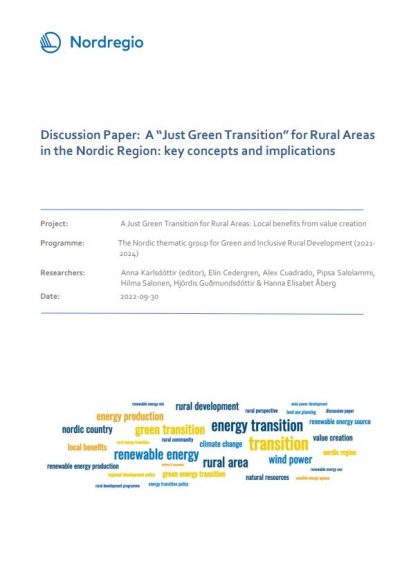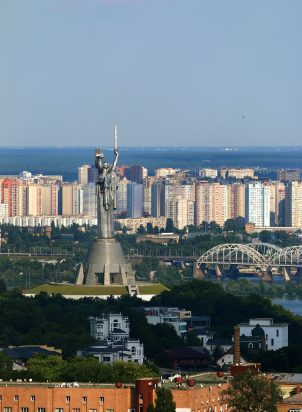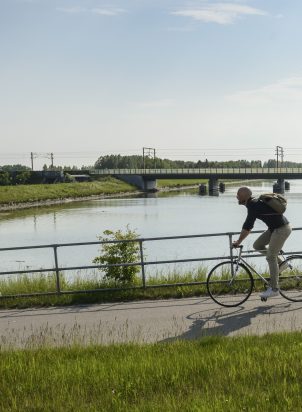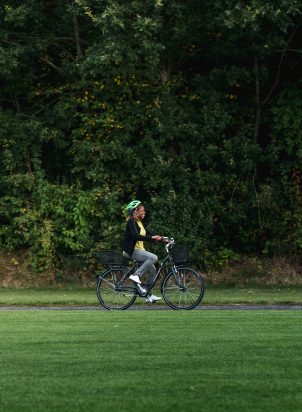This discussion paper focuses on the green energy transition, specifically the renewable energy mix and low-carbon electricity production. All of the Nordic countries have committed to mitigating climate change and its effects on society through a variety of policies, strategies, and measures across a vast array of sectors aimed at curbing greenhouse gas emissions, ensuring the preservation of biodiversity and phasing out fossil fuels.
This paper presents conceptual guidance and working definitions of aspects related to energy in the just green transition. The analysis focuses, in particular, on the key implications for rural areas in the Nordic Region.
We examine three research questions:
- What are the key implications of the renewable energy transition (as part of green transition efforts) for rural areas in the Nordic context in current academic and policy-related literature?
- How prominent is the Nordic rural perspective in academic literature and green transition policy documents, and how is this perspective expressed?
- What possible gaps are there in current green energy transition policies from the rural perspective in terms of addressing the just transition and local benefits from value creation?











